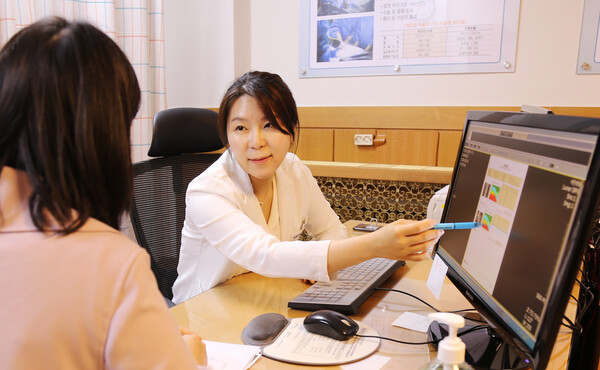Middle-aged women go through a lot of changes when they reach menopause and stop menstruating. Menopause should be seen as a natural process of bodily change rather than a disease, experts said.
However, if your symptoms are severe enough to make you feel uncomfortable daily, it is time to take a proactive approach to manage them, they said.
As women age, their ovaries stop producing female hormones. When a woman has not had her period for a year, she is diagnosed with menopause, which is usually genetically determined. It usually starts in the mid-to-late 40s and progresses gradually, and the period from menopause to about a year after menopause is called the menopause transition period.
According to the Korea Health Insurance Review and Assessment Service, 393,839 patients visited medical centers for "menopause and menopausal conditions” in 2022. The number of menopausal patients approaches 400,000 every year, and those aged 50 to 59 account for the highest number of visits and medical expenses.
Symptoms
Middle-aged women experience many physical and mental changes as the production and secretion of female sex hormones (estrogen and progesterone) decrease in the ovaries.
The most common symptoms of menopause are hot flashes and night sweats. Some of these symptoms are more severe, with hot flashes accompanied by fatigue, anxiety, depression, memory problems, and urinary incontinence.
In some cases, the symptoms occur at night, causing sleep disturbances such as insomnia. Bone density decreases, leading to osteopenia and osteoporosis, which increases the risk of fractures.
Blood cholesterol also increases, leading to high blood pressure and coronary artery disease. This greatly increases the risk of developing these diseases.
Even if no physical illnesses are triggered, the quality of life is often greatly reduced. Hot flashes and night sweats can limit social activities. Sleep disturbances can lead to fatigue, and memory problems can cause stress.
How to overcome menopause symptoms
Lifestyle modification is the key to overcoming menopause symptoms. Hot flashes can be controlled to some extent by exercising regularly, controlling weight, avoiding hot or spicy foods, and quitting smoking.
Regular exercise can also help strengthen muscles and prevent fractures due to decreased bone density.

"Menopause is a change that happens to every woman, but there are many factors that directly affect your health, so you need to be careful," said Seo Eun-ju, head of the obstetrics and gynecology department at Seran General Hospital. "You can consult with your doctor about hormone replacement therapy. depending on your symptoms."
Other tips include avoiding alcohol and soda, which interfere with calcium absorption, and aerobic exercise for at least 20 minutes three times a week.
"As life expectancy increases, so does life after menopause," Seo said. "To maintain a healthy mind and body during menopause, it's important to avoid smoking, eat a balanced diet, and get adequate exercise."

